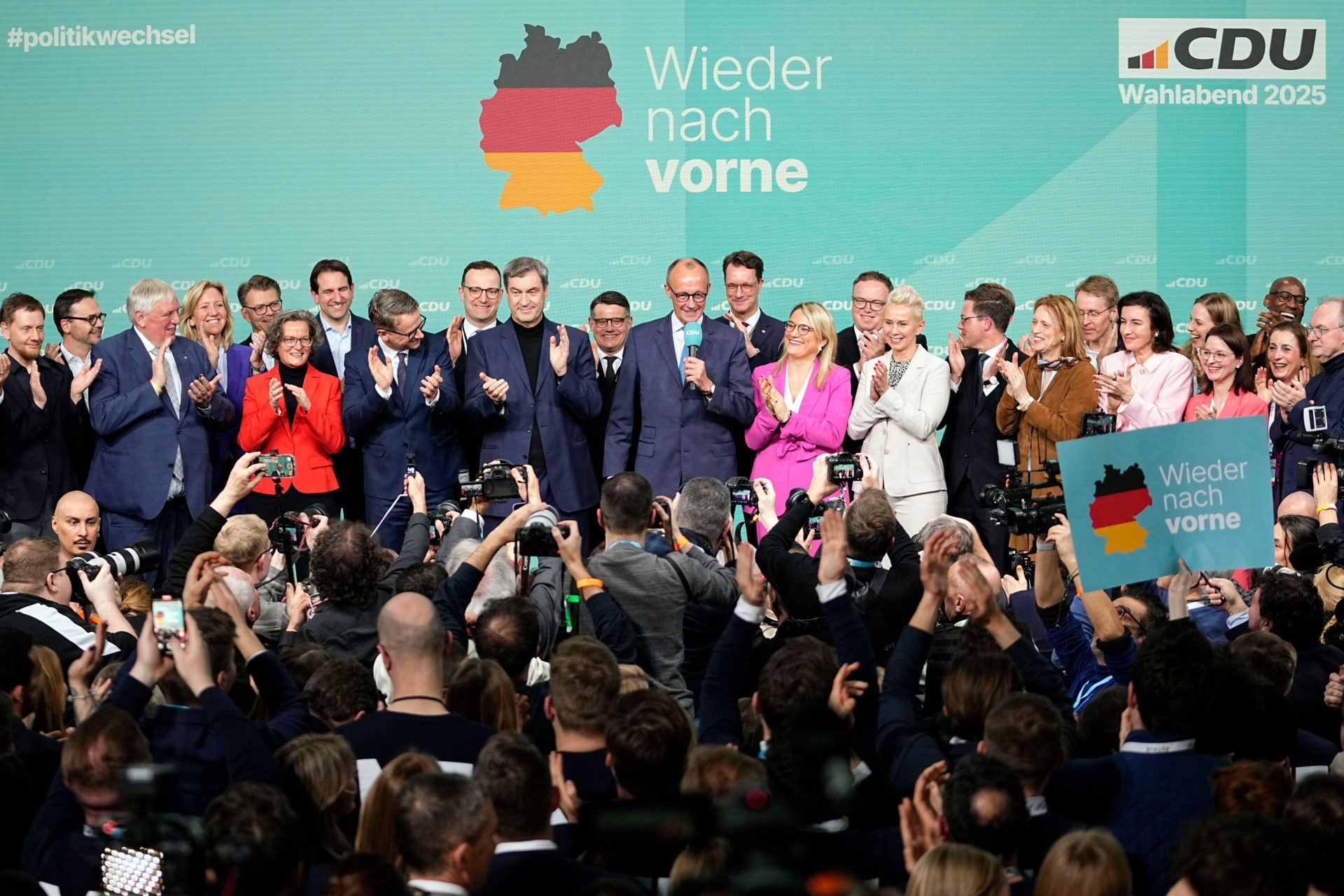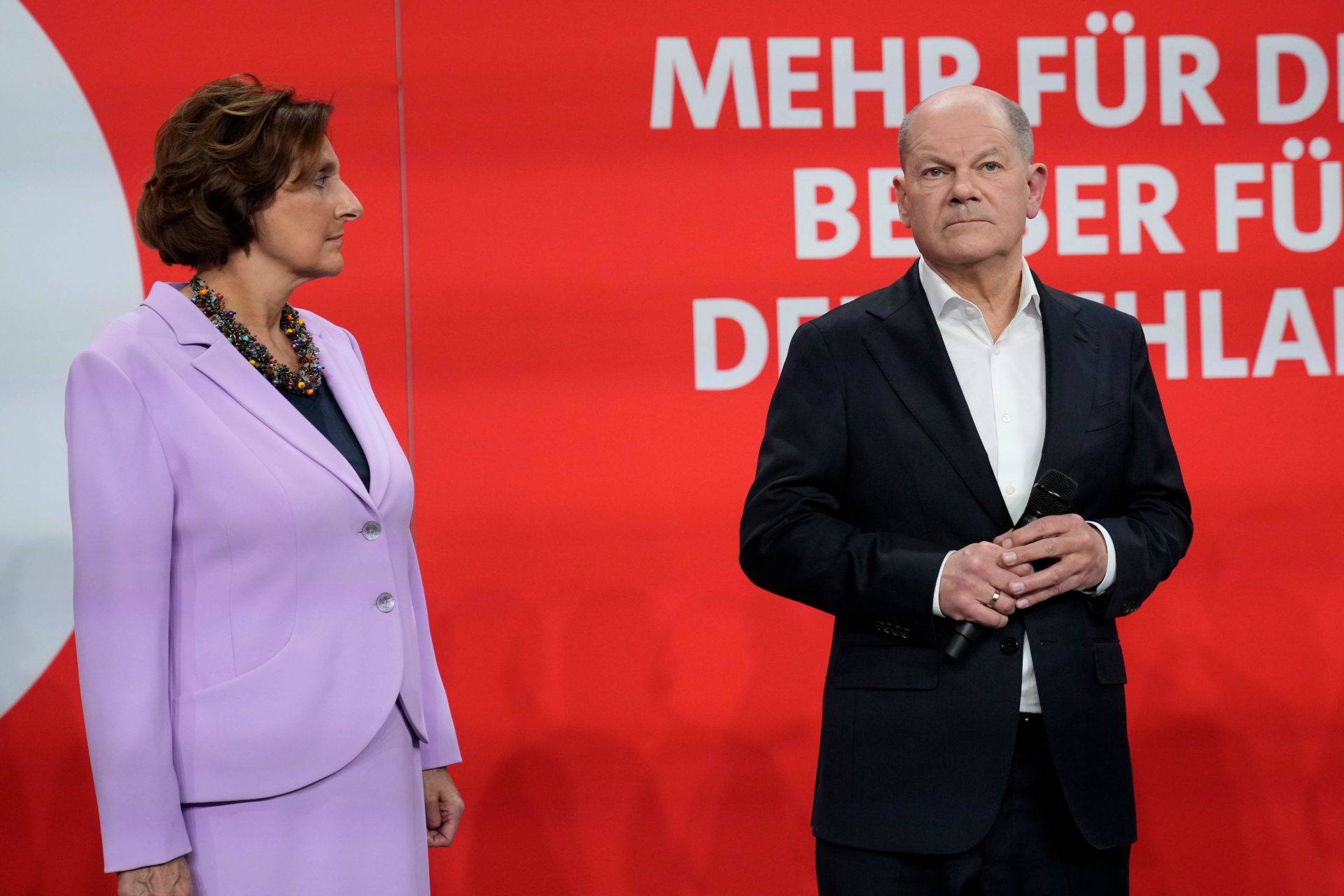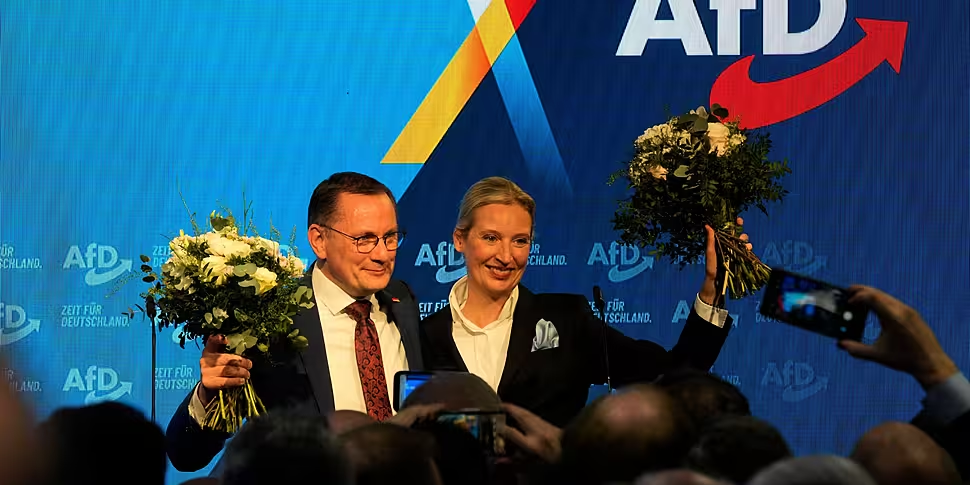Germany faces tough coalition talks after the country’s main far right party has come in second place in recent government elections.
Germany's conservative Christian Democrats (CDU) have come first in the country’s general election alongside their sister party the Christian Social Union (CSU).
The far-right Alternative for Germany (AfD) has scored its best-ever result, while Chancellor Olaf Scholz's Social Democratic Party received 16.4% of the vote - its worst post-war election performance.
The leader of the CDU/CSU bloc, Friedrich Merz, who will most likely become Germany's next chancellor, said he would work on forming a government as soon as possible.
 Friedrich Merz, center, the candidate of the election winner, the conservative Christian Democratic Union party, CDU, addresses supporters at the party headquarters in Berlin, Germany, Sunday, Feb. 23, 2025, after the German national election. (AP Photo/Martin Meissner)
Friedrich Merz, center, the candidate of the election winner, the conservative Christian Democratic Union party, CDU, addresses supporters at the party headquarters in Berlin, Germany, Sunday, Feb. 23, 2025, after the German national election. (AP Photo/Martin Meissner)Despite the AfD's result, Mr Merz's bloc and the rest of the mainstream parties have ruled out working with the far-right as part of a long-running pact known as the "firewall".
Mr Merz faces complex coalition negotiations, and whether he will need one or two partners to form a pact will depend on how many parties get into parliament.
View this post on Instagram
Irish Times Journalist based in Berlin Derek Scally told Newstalk Breakfast that, despite their poor performance, the Social Democratic Party will likely be supporting the next German government.
“If you look at it on the one hand, on paper, the right, the centre right or the far right have basically got 50% of the vote, but the centre right CDU will not be working with the far right,” he said.
“They said that before the election, they’ve said it since the election, and they will actually seek out the support of the Social Democrats – that's the party of Olaf Scholz.
“They had their worst election in history, but they are probably going to be the junior coalition partners in the next government.”
'The world isn't waiting for us'
Mr Scally said the CDU are hopeful that a government could be formed by Easter.
“Friedrich Merz, the chairman of the CDU and Germany’s likely next Chancellor, he said, ‘The world isn’t waiting for us, the world is changing, we need to do this quickly’ - but it will be tough,” he said.
“The Social Democrats have had a very bad election, Olaf Sholz is likely to depart at the scene; he won’t be any part of the new government, he said.
“So, you’ve got a party that’s had it’s worst election in history, but it’s also now the only option for Friedrich Merz."
 German Chancellor Olaf Scholz, right, and his wife Britta Ernst after first projections are announced. March 23, 2025. (AP Photo/Ebrahim Noroozi)
German Chancellor Olaf Scholz, right, and his wife Britta Ernst after first projections are announced. March 23, 2025. (AP Photo/Ebrahim Noroozi)According to Mr Scally, coalition negotiations have previously dragged out for “months and months and months”.
He said that the huge increase in support for the AfD is “complicated”.
“There are many reasons, some are similar to elsewhere in Europe, but in the German case it’s a huge feeling of insecurity,” Mr Scally said.
“There have been a series of attacks involving asylum seekers – or in many cases, failed asylum seekers who actually should have been deported.
“There’s also just a sense that the German economic model is struggling and that the main parties who have been in and out of power in the last years have basically brought Germany to this point and something significant is required.
“Then there’s an awful lot of this conspiracy theories, these feelings of, you know, pro-Russian feelings in the [AfD], many people associating themselves with Trump and Musk, that things need to be disrupted.”
Mr Scally said there is “a lot to play for” in Germany at the moment.
Listen back here:
Main image: Leaders of far right AfD Alice Weidel and Tino Chrupalla address their supporters at the AfD party headquarters in Berlin, Germany, Sunday, Feb. 23, 2025, after the German national election. (AP Photo/Michael Probst)









